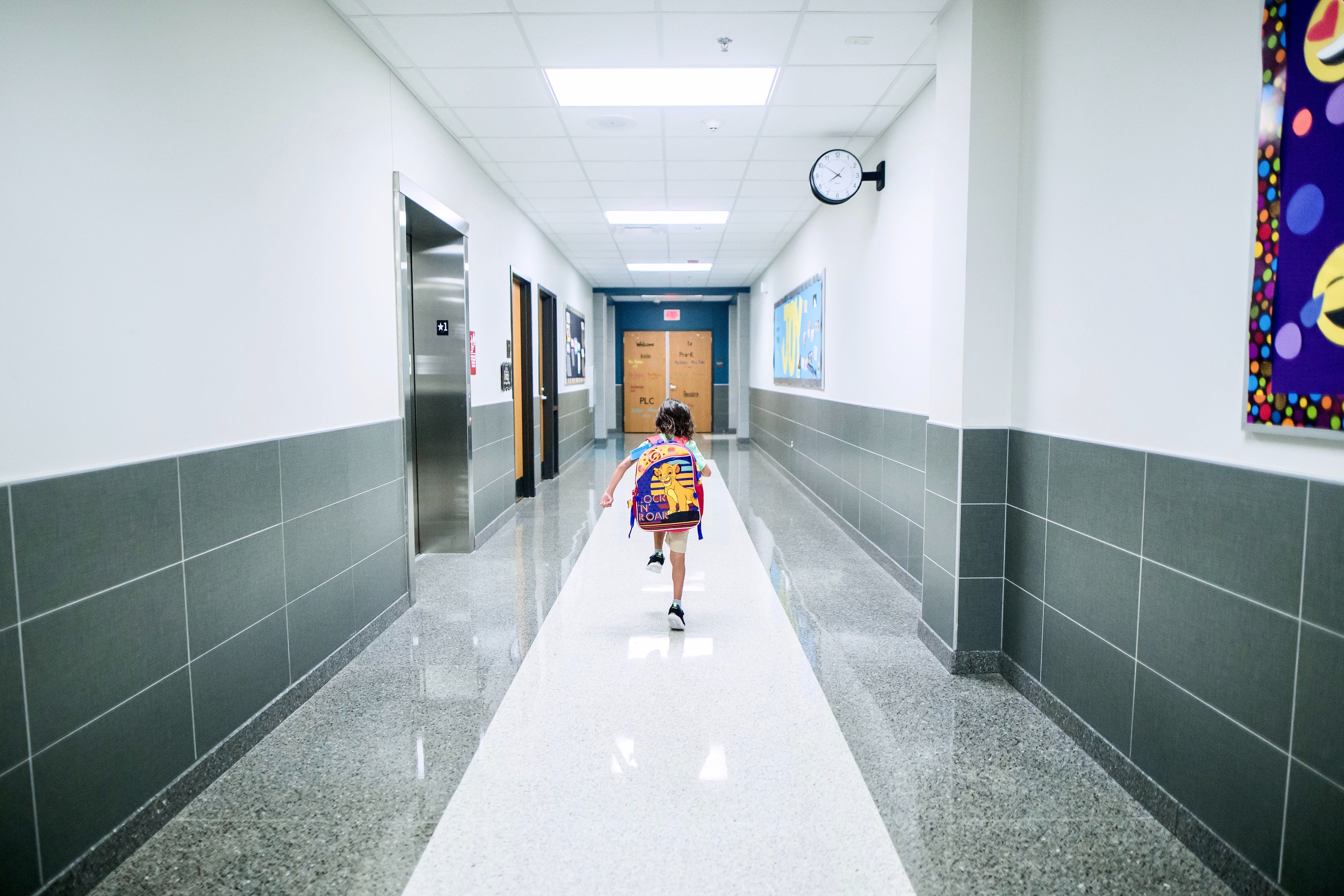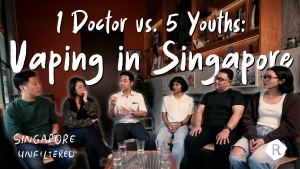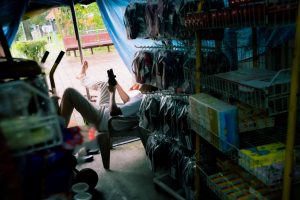You’re six now. Next year, you’ll be in primary school. Your education journey has only just begun, and as your father, I’m scared as hell.
I’m scared because the choices you make determine the nature of your journey, especially early on in school. Teachers, subjects, CCAs, exams, and friends—all these influences will mould your worldview. As your father, I want to share some of my life lessons so you’ll learn what I’ve been through.
Life lesson number one: Don’t become me, be you.
In my 1st year of Poly, back around 1993, I didn’t have many friends. Being Malaysian, I was a foreign student studying Business in a class of 30. Then, it was just me and this other lanky guy in spectacles, and the rest were females. Yeah, I know, sounds like one of your anime shows.
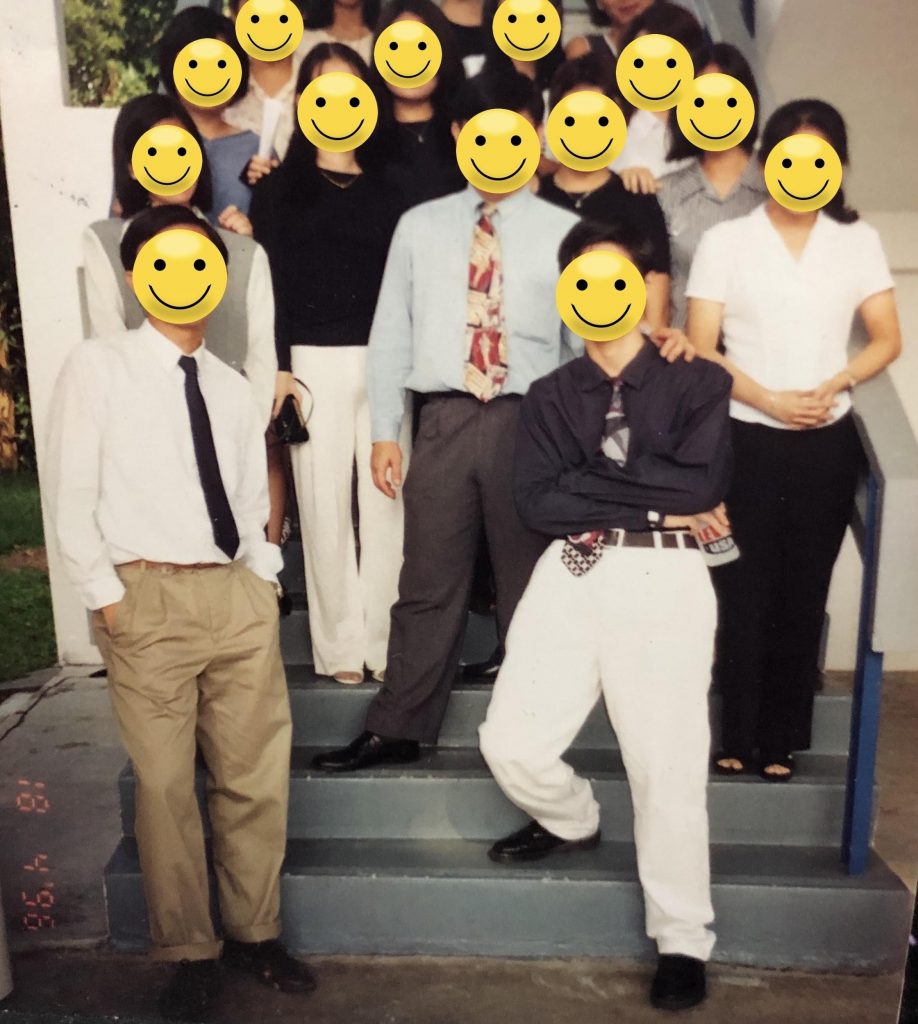
My distractions were girls and computer games. For you, it’s now Google Home, Netflix, Siri, iPad, Amazon Prime, Hasbro toys, pink v.Tech stuff, and kindergarten mates who are constantly choosing who they want to be best friends with. Trust me, if it isn’t complex now, it’s gonna get a little more complex in the years ahead.
Anyway, the girls in my class were mostly attached. Games were expensive (they came in compact disc boxes with actual printed manuals), and my only other option was to take the Singapore-JB train from Tanjong Pagar to Holiday Plaza to hunt for chiong ones. Nowadays, you just play them on mummy’s iPhone with a snap of your fingers.
When I scored my first and only D out of 39 subjects, your Tai Kong, who funded my tuition fees, sighed like somebody had stolen and claimed his winning TOTO ticket. Why? Because waste money. I wasn’t perfect. I was stressed out because I couldn’t make him happy—breakfasts with him felt like scenes from The Godfather. No tau huey for you boy!
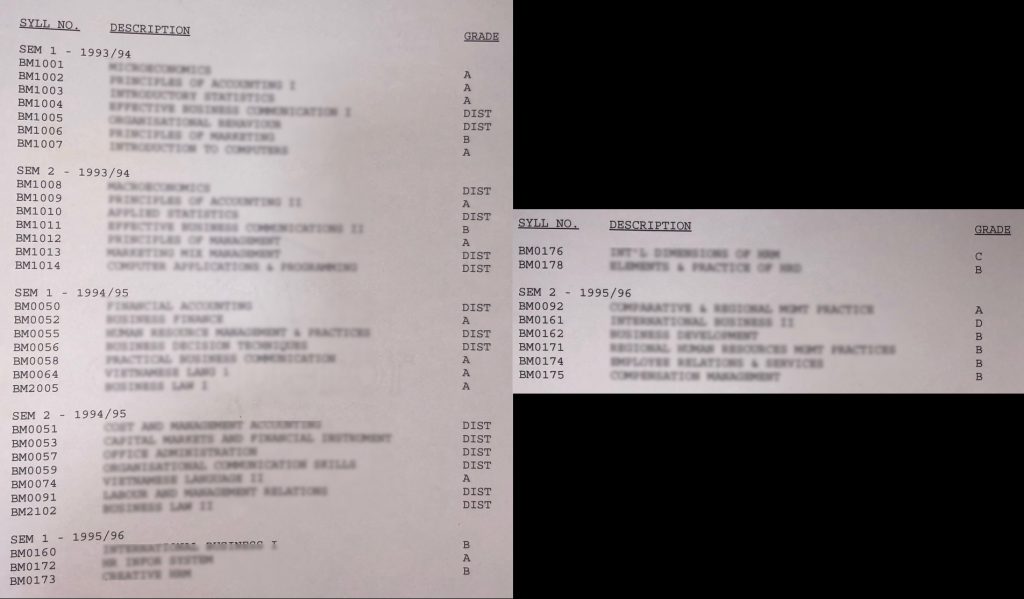
“…tells students it’s okay to waste time, get an ‘F’”
Tan Min Liang, CEO, Razer, quoted in an interview with Tech in Asia, 2013
After three years, I graduated top of my class. But I didn’t go into business or start one. I went into writing instead, turning it into a career of sorts. So everything I’ve learned, despite the Distinctions and As, came to nought. If you ask me about my Poly days, I would say I shouldn’t put so much pressure on myself just to make someone else happy.
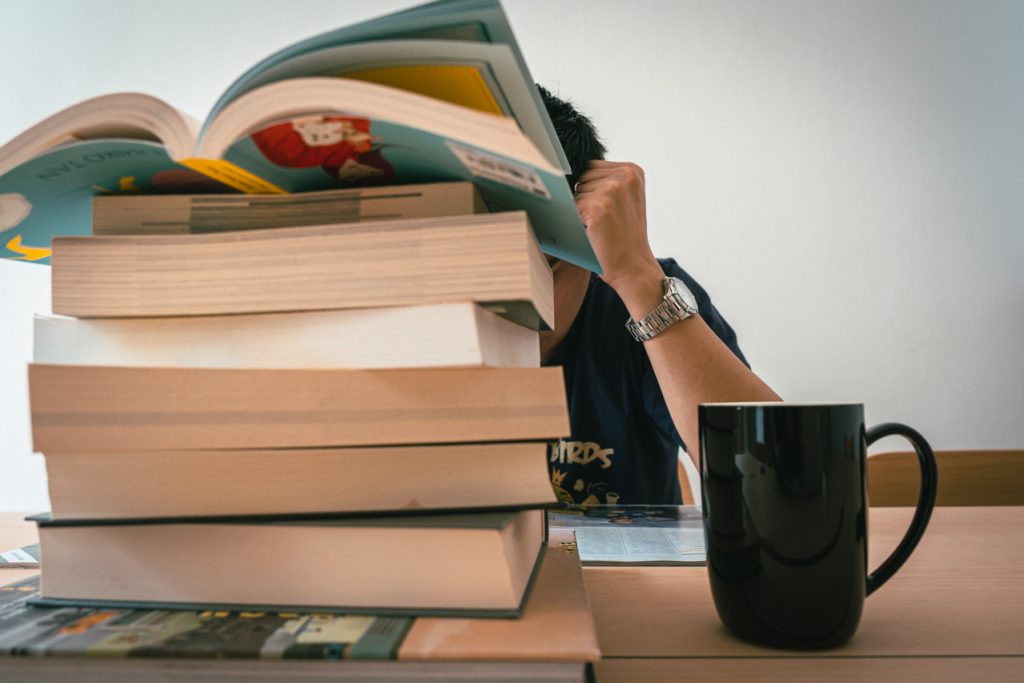
Having been through what I have, what I’m trying to say is this: don’t worry too much about school. Singapore’s education policy is undergoing a sort of renaissance; a kind of shift, I suppose, from knowledge to softer, more experiential skills. I studied obsolete software programmes like Lotus Notes and Wordstar in Polytechnic—stuff you’d probably think were characters from Care Bears.
What’s happening now is actually good. Instead of cramming stuff that isn’t going to help you in the real world, this renaissance will prepare you for the real world.
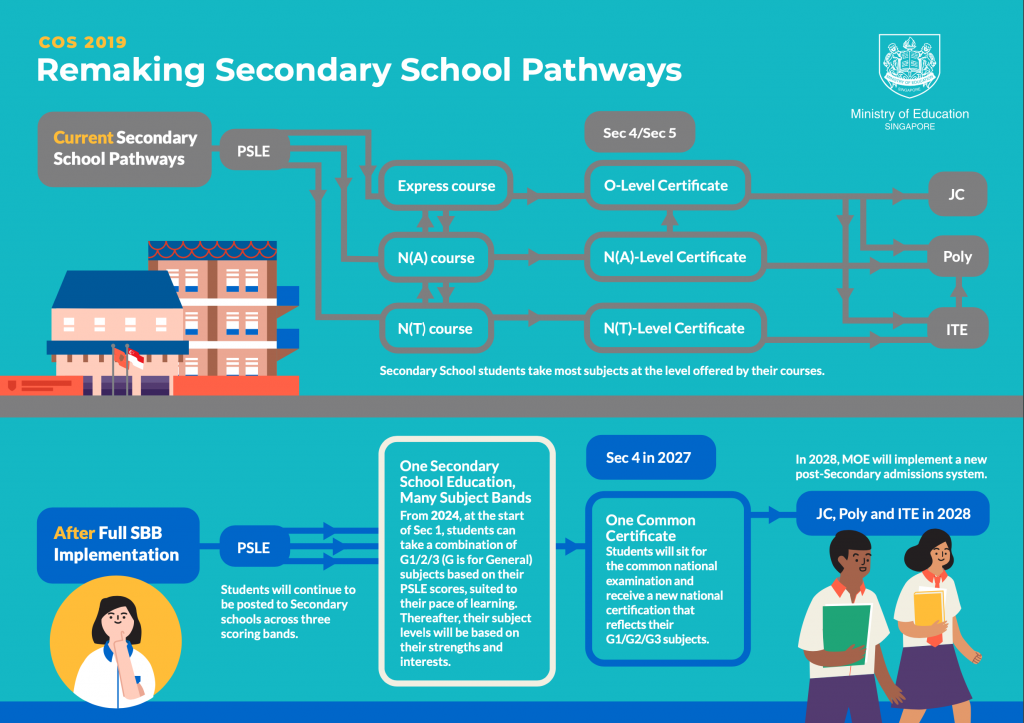
The Ministry of Education (MOE) folks are abolishing Normal (Technical/Academic) and Express streams. They are introducing subject-based banding. They’re also doing away with graded assessments and exams for Primary 1 and 2 students, and removing mid-year exams for Primary 3 and 5, and Secondary 1 and 3 students. Which means three weeks of curriculum time freed up every two years. Which means more time for other activities and projects.
Which also means, more time for parents to slot in extra tuition hours? Just kidding, I promise to tell Mum that we shouldn’t. As your parent, I shouldn’t enforce principles the same way my Tai Kong enforced them on me. You’re not me. You’re you. Besides, the time I was a student and the time you’re in now are two different timelines. What use is there if I punish you for failure or add pressure on you when the effect is just going to add more pressure on all of us? Some level of tolerance is necessary and definitely some perspective to see your point of view for both Mum and myself.
The sad thing is other parents (and some of your school-friends) will see things differently and be extremely competitive. Sometimes I see them posting photos of their kids receiving awards, prizes; heaping praise. Also tuition teachers sharing their students’ results and communications online.
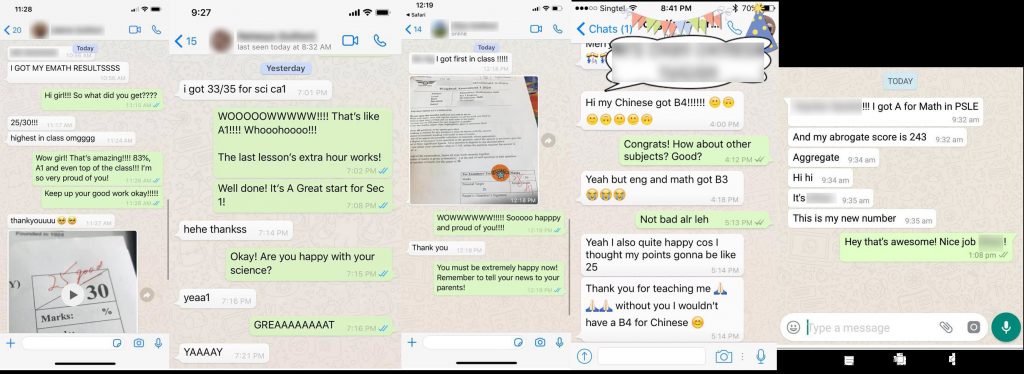
You will see all this.
This then is life lesson number two: Your capacity to accept failure. I want you to know that it’s okay to fail. As long as you learn from these failures and become better, you’ll be a better student and a better person.
There will be students who are constantly pushing themselves for higher scores because they (or their parents) cannot accept failure. There will also be students who aren’t afraid to fail, pick themselves up, and learn from their failures.
As a parent, I want you to experience the latter, because I’ve been through the former path myself and I know failure is never taught, it has to be experienced. My personal hope is that instead of a culture of competition in schools, you will live in an education culture of collaboration, where failure is part of the learning process, not a form of embarrassment through peer pressure.
“With the removal of one mid-year examination in every two-year block, teachers will not need to rush through the syllabus. This gives them the time and space to explore new areas, and try out more effective pedagogies.”
Ong Ye Kung, Minister for Education
Here comes life lesson number three. Your social circle. Culturally, you’re going to be socialising and meeting more people—way more than I ever did. This is also part of your lifelong learning. As it is, digital content is rife with mature-rated social influences, expectations, and comparisons. As a teenager, you’ll probably broadcast your start-stop relationships on social media like 4D weekly results. The pressures to fit in will be as stressful as scoring well in weighted assessments.
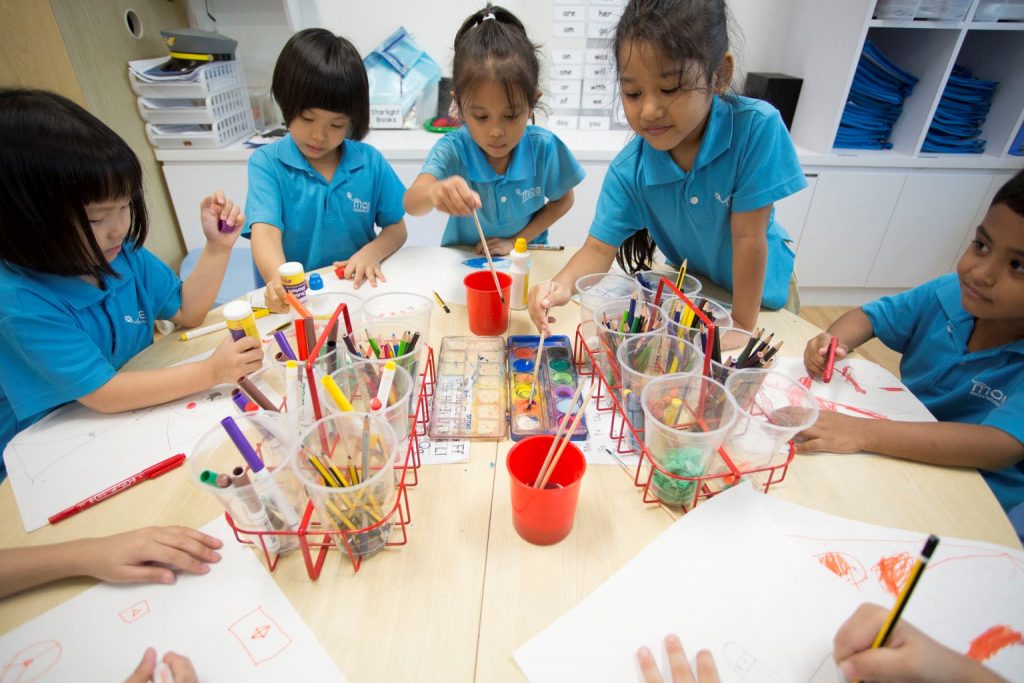
I won’t lie. Mum and I are worried. Singapore’s Institute of Mental Health (IMH) has said that their Child Guidance Clinics have been treating stressed-out children since 2012, with about 2,400 cases every year. Many of them relate to stress, anxiety, and depression.
Most causes are related to school, like homework and exams. Or relationships, like friendship and bullying.
Even if your results aren’t great, remember: we’re always here for you. We want to make sure there’s a strong support system behind whatever you’re going through. We know it starts with us, your parents.
With your teachers, extended families, friends and social communities, we want to build a support system for you—people you can fall back on to share your anxieties, school pressures and relationship ups-and-downs. Strong bonds with your peers and in teams can mentally make you tougher, whether it’s as simple as answering a challenging conundrum together or weathering some of your toughest emotional storms.
“The difference between school and life? In school, you’re taught a lesson and then given a test. In life, you’re given a test that teaches you a lesson.”
Tom Bodett, author, voice actor and radio personality
Here comes the fourth life lesson: The way you learn. For the first 15 to 20 years of your life, you will spend more than half or two-thirds of your waking life in school. That’s a lot of time spent away from even your parents. In this time, applied and inquiry-based learning, like brainstorming, experiential learning and different ways to absorb information can make you a complete life-learner beyond just the academic.
During my school breaks, I travelled. I went to places to experience cultures, languages, and to learn what it meant to be socially aware, morally upright, and environmentally involved. There was a time when I was travelling with a group of hikers in Johor. There was a storm and we got lost in the wilderness.
We brainstormed.
One of us pointed at the flow of streams, reasoning that it would lead us to the river. Another suggested we retrace our route—even though we had veered too far off. Having experienced blackouts in my study hall before (beyond ogling at cute girls from behind stacks of textbooks), I suggested we signal with our flashlights as we walked. Fortunately, someone saw us and led us back out. In the end, we kept in touch and became the best of friends.


“In Singapore, the no U-turn without sign culture has permeated every level of our thinking…of our life…When there is no sign, we cannot U-turn. When there is no rule, we cannot do anything. We become paralyzed.”
Sim Wong Hoo, CEO and Chairman, Creative Technologies from his book, Creative Thoughts from the Old Millennium
MOE has its Values in Action (VIA) programmes—learning experiences to help you develop yourself as socially responsible citizens. For instance, under this programme, Chung Cheng High built a butterfly garden in partnership with the Jane Goodall Institute. Hougang Secondary School encouraged its students to tutor primary school pupils in the neighbourhood.
They will help you build empathy through engagements with the people in your schools (e.g. giving the toilet-cleaners a day off so you can learn to scrub floors, serve everyone at the cafeteria, and learn to look after your juniors in school). Or pair you with students of different nationalities, races, learning and language capabilities for your project teams.
In fact, I’m heartened to say that MOE has made daily cleaning compulsory in schools. Schools also teach students what it means to be responsible to clear plates and clean tables at canteens as a show of respect and care for others. Maybe someday, when you are able to feel more for others, you will be able to sense if Mum and Dad are fine, worried or in pain without even asking us.
I hope your schools will start incorporating more of such ‘innovation thinking’. It doesn’t have to be in the curriculum, but simply part of the way lessons are taught. Maybe something as simple as rearranging learning spaces—such as circle time (where children interact in a circle to remove any favours of who’s nearer to the teacher or farthest), round-robin discussions (where everyone gets a chance to speak), shoeless environments (so you can kick off your shoes to study), or outdoor classrooms (to understand our connection with nature).
Educators have a vital role in your student life, and I hope they will prepare you for the job landscape ahead.
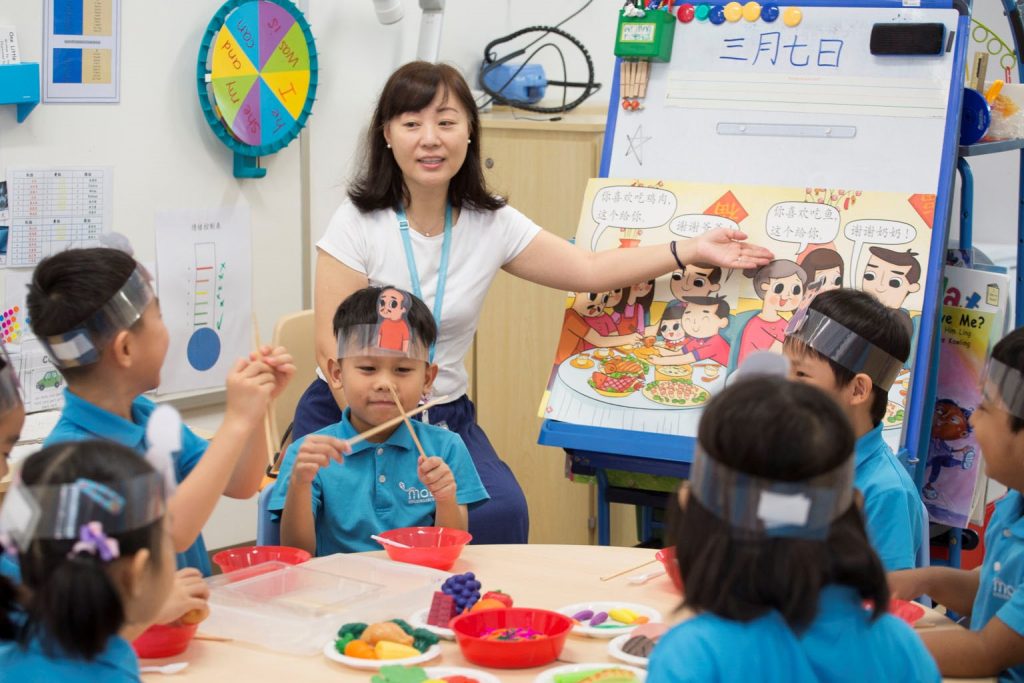
Mum and I also want you to embrace and appreciate life as an art form. Discover your inner talents and curiosity to lean into the unknown. During curriculum breaks, try to seek out and develop your artistic, musical, or communal inclinations. This is how scientists, innovators, developers, and entrepreneurs become better at their crafts. Who knows, you may become the next wildlife ambassador Jane Goodall, ex-NMP and actress Janice Koh, or world-record-breaking astronaut Christina Koch?
Mum and I want you to know it’s all right to try all kinds of things till you know what you are truly interested in. We’re not pushing you to be something, or someone you’re not. We’re more afraid if you are unable to become the person you want to be.
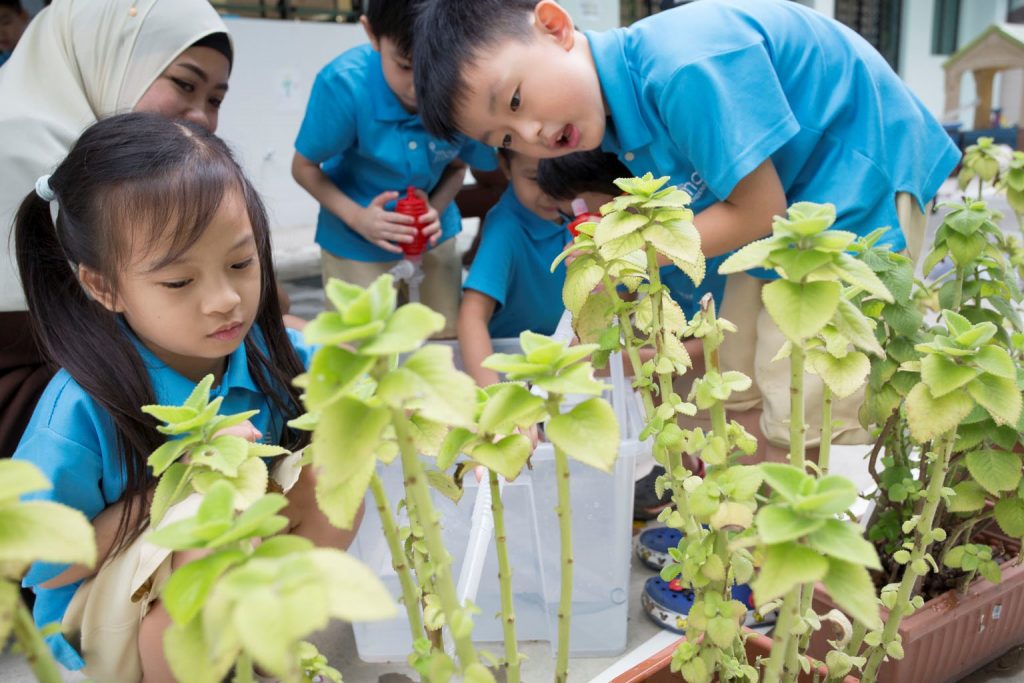
“It’s not the mountains that we conquer, but ourselves.”
Quek Siu Rui, CEO and co-founder, Carousell
Finally, here’s lesson number five and perhaps the most critical: Your perspective of the world and how it has supported your growth.
While changes in MOE’s policies will put less focus on grades, parents like us, along with teachers, will need to take the hint as well.
Instead of sending you for additional academic classes (more A Math or Chinese tuition), we are hoping to work with your teachers and social circles to improve your ecosystem for lifelong learning.
We want to give you sufficient breathing space—so you can explore areas beyond your academic life—to discover your undiscovered talents, become an empathetic individual, develop a deep understanding of the social and psychological, think inventively, and appreciate all things creative and artistic.
Eventually, Mum and Dad will grow old. Will you, having learned all of these things, appreciate and come visit us often, knowing we’ve done our best for you since young? Will you also appreciate your educators, who have guided you through some of the toughest years of your life? Or will you blame us for putting so much pressure on you when you were a child, and all we cared about was for you to excel, score high grades and make us feel good in front of others?
Lifelong learning, even in schools, should not be a race around a 400-metre circular track. It should be a crawl, a walk, a jog and the occasional run anywhere around the school field.
My hope is that you’ll find your pace in school—not see yourself as someone lugging textbooks from one classroom to the next. Be a consummate and curious learner. Remember me as a curious, creative and morally upright person, not someone who used to be a top student in his school. You may not grasp the reasons now but you will. Because someday, you may find yourself writing the same letter to your child, wishing for similar things.
Let’s hope by then, the education renaissance would give you less reasons to do so.

Papa
Do you have a love letter to someone who is currently on his or her education journey? Share it with us at community@ricemedia.co.

